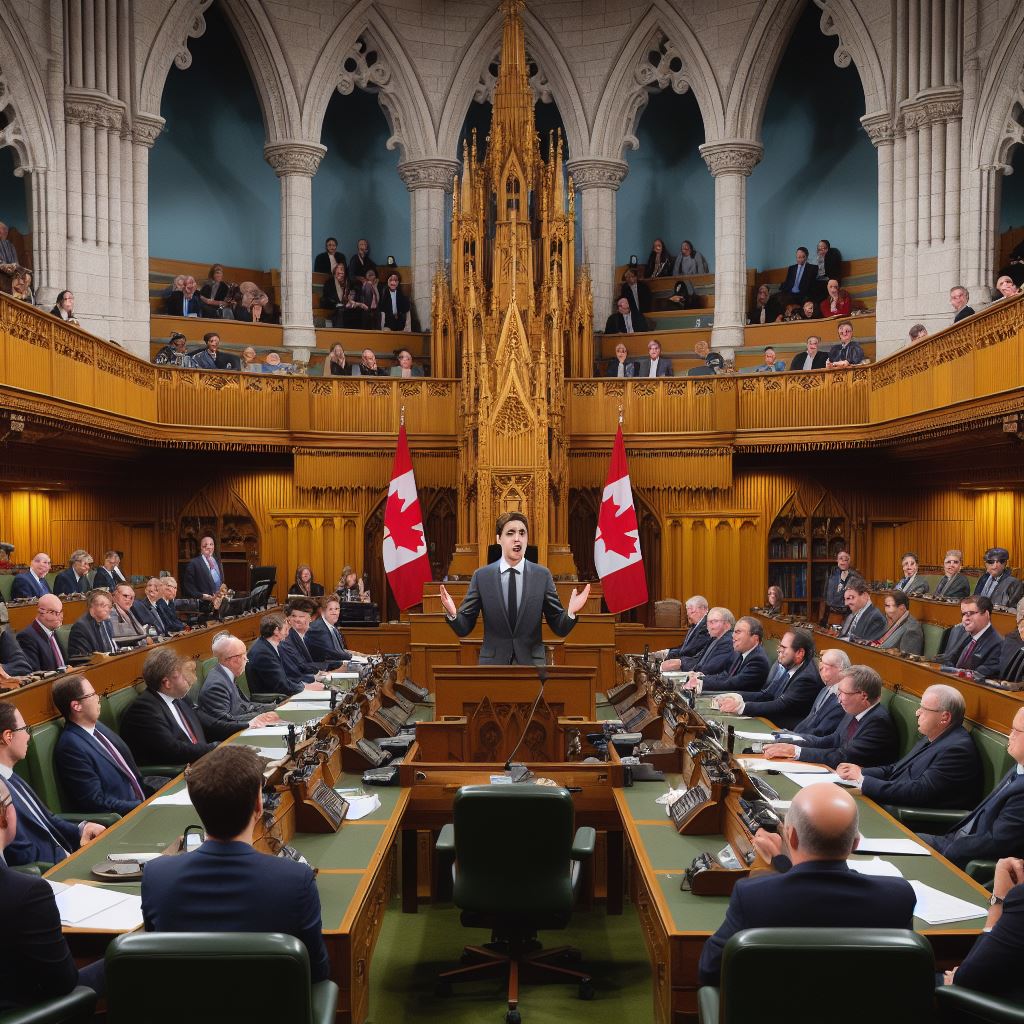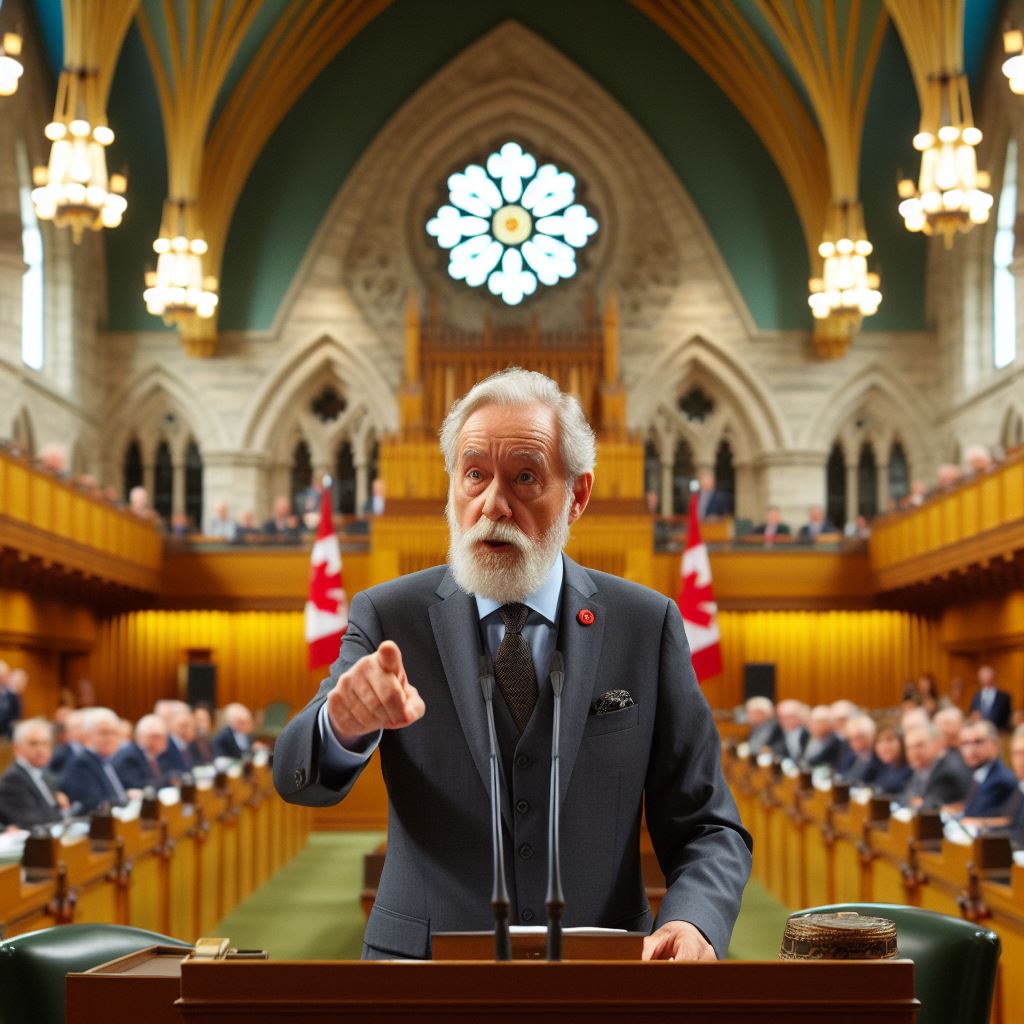Introduction
Political fundraising in Canada is an important and relevant topic that requires attention and analysis.
The financing of political campaigns has a direct impact on the democratic process and the functioning of the Canadian political system.
Understanding how political parties and candidates raise funds is crucial in order to assess the influence of money in politics and to ensure transparency and accountability in the electoral process.
Being aware of the rules and regulations governing political fundraising in Canada allows citizens to make informed decisions and exercise their democratic rights effectively.
Furthermore, studying this topic provides insights into the strategies and tactics employed by politicians to secure financial support and to gain an advantage over their opponents.
The analysis of political fundraising in Canada also sheds light on the sources of funding, such as individual donations, corporate contributions, and public subsidies, and raises questions about the potential influence of special interest groups in shaping political agendas and policies.
Ultimately, discussing this topic contributes to a better understanding of the dynamics of Canadian politics and the interplay between money, power, and democracy.
Overview of Political Fundraising in Canada
Political fundraising in Canada plays a crucial role in financing political parties and supporting candidates who are seeking election.
It serves as the lifeblood of the political system and enables parties and candidates to carry out their campaigns effectively.
Political Fundraising
- Political fundraising involves the collection of funds from individuals, organizations, and other sources to support political activities.
- These activities include election campaigns, party administration, policy development, and outreach efforts.
- Money raised through political fundraising helps parties and candidates cover various campaign expenses, such as advertising, travel, staff salaries, and technology.
Importance of Fundraising for Political Parties and Candidates
- Political fundraising is essential for political parties and candidates to compete in elections on a level playing field.
- It allows them to communicate their party platforms, gain public support, and achieve their policy objectives.
- Fundraising efforts also enable parties to maintain a strong organizational structure and infrastructure throughout the country.
- Parties rely on fundraising to develop long-term strategies, fund research, and engage with voters effectively.
Regulations and Laws Governing Political Fundraising in Canada
- In Canada, political fundraising is governed by various regulations and laws to ensure transparency, accountability, and fairness.
- The Canada Elections Act sets out the rules and guidelines for political financing at the federal level.
- Provincial and territorial legislation also regulates fundraising activities within their own jurisdiction.
- These laws impose contribution limits, prohibit certain sources of funds (such as foreign donations), and require reporting and disclosure of fundraising activities.
- Political parties and candidates must comply with these regulations, and failure to do so can result in penalties and legal consequences.
Furthermore, Elections Canada, the independent body responsible for administering federal elections, oversees compliance with political financing rules.
It enforces donation limits, audits party finances, and publishes reports to promote transparency and accountability.
In recent years, there have been discussions and debates about potential reforms to political fundraising laws in Canada.
Some argue for stricter regulations to prevent the influence of money in politics, while others emphasize the need for a balance that allows parties and candidates to raise necessary funds for democratic engagement.
Overall, political fundraising is an integral part of the Canadian political landscape.
It enables parties and candidates to operate effectively, engage with voters, and pursue their democratic objectives.
While regulations ensure transparency and fairness, ongoing discussions continue to shape the future of political fundraising in Canada.
Read: Canadian Politicians and International Diplomacy
Types of Political Fundraising in Canada
The different methods and channels used for political fundraising
Political fundraising in Canada involves various methods and channels to gather funds for political parties and candidates.
In this section, we will explore both traditional and modern approaches to political fundraising.
Traditional Methods
Traditional methods of political fundraising in Canada have long been used and are still prevalent today. These methods include:
- Events: Political parties and candidates organize fundraising events such as galas, dinners, and rallies. These events provide an opportunity for supporters to contribute financially while enjoying social interactions.
- Donations: Individuals and corporations can make monetary contributions to political parties or candidates. Donations are regulated by the Canada Elections Act, which imposes limits on the amount that can be given by individuals and prohibits contributions from certain sources.
- Memberships: Political parties offer memberships to supporters, who pay an annual fee to join. Memberships not only provide financial support but also demonstrate a commitment to the party’s ideals and values.
Modern Approaches
With advancements in technology and changing dynamics, modern approaches to political fundraising have gained traction in Canada.
These approaches include:
- Online Fundraising: The internet has revolutionized political fundraising. Parties and candidates use various online platforms and tools to solicit donations, such as dedicated fundraising websites, email campaigns, and social media platforms. Online fundraising allows for wider reach and easier contributions
- Crowdfunding: Crowdfunding has become increasingly popular in political fundraising. It involves raising small donations from a large number of individuals through online platforms dedicated to crowdfunding political campaigns. This approach allows candidates with limited resources to tap into grassroots support.
Advantages and Challenges
Both traditional and modern methods of political fundraising come with their own advantages and challenges.
Traditional methods, such as events and donations, allow for personal connections and face-to-face interactions with supporters.
These methods can create a sense of community and loyalty among donors.
Unlock Your Career Potential
Visualize a clear path to success with our tailored Career Consulting service. Personalized insights in just 1-3 days.
Get StartedHowever, traditional methods can also be resource-intensive and time-consuming.
Organizing events requires significant planning and logistics, and soliciting individual donations can be a daunting task for candidates.
On the other hand, modern approaches like online fundraising and crowdfunding offer convenience, cost-effectiveness, and wider reach.
These methods enable candidates to engage with a larger audience and tap into the power of social media.
Nevertheless, modern approaches may present challenges in establishing personal connections and building long-term relationships with donors.
Virtual interactions might not evoke the same level of commitment and loyalty as face-to-face interactions.
In fact, political fundraising in Canada encompasses various methods and channels.
Traditional approaches, such as events, donations, and memberships, continue to play a significant role.
However, modern approaches like online fundraising and crowdfunding have emerged as effective alternatives.
Each method has its own advantages and challenges, and political parties and candidates must carefully consider a combination of these approaches to ensure successful fundraising campaigns.
Read: Navigating Political Parties in Canada
Major Political Fundraising Players in Canada
In the world of political fundraising in Canada, a variety of players emerge, each with their own strategies and goals.
This section will delve into the prominent political parties and their fundraising strategies, highlight key individuals or organizations involved in political fundraising, and analyze the role of interest groups and corporations in funding political campaigns.
Prominent Political Parties and Their Fundraising Strategies
- Liberal Party of Canada: The Liberal Party has historically been successful in fundraising, relying on grassroots donations and large-scale fundraising events.
- Conservative Party of Canada: The Conservative Party utilizes a combination of small individual donations, corporate sponsorships, and fundraising events.
- New Democratic Party (NDP): The NDP relies heavily on grassroots fundraising, focusing on small individual donations and crowdfunding campaigns.
- Green Party of Canada: The Green Party emphasizes small individual donations, online fundraising platforms, and also receives support from environmental organizations.
Key Individuals or Organizations Involved in Political Fundraising
- Political Candidates: Candidates themselves play a crucial role in fundraising, actively seeking donations from their supporters and constituents.
- Party Leaders: Leaders of political parties often engage in fundraising efforts, attending events and reaching out to potential donors.
- Fundraising Consultants: Many political parties and candidates hire professional fundraising consultants to strategize and execute their fundraising campaigns effectively.
- Donors: Individuals or organizations that contribute funds to political parties, candidates, or causes, often based on ideological alignment or personal interests.
- Unions and Associations: Labor unions, trade associations, and professional organizations are known to engage in fundraising for political parties and influence policy decisions.
The Role of Interest Groups and Corporations in Funding Political Campaigns
- Interest Groups: Interest groups are organizations that advocate and promote specific issues, often providing financial support to political parties or candidates who align with their causes.
- Lobbyists: Lobbyists, who represent corporate interests, contribute funds to political campaigns as a means to influence policy decisions in favor of their clients.
- Corporations: Some corporations engage in corporate donations or sponsorships to political parties, thereby seeking to gain influence and shape policies that align with their business interests.
- Third-Party Campaigns: Outside of political parties, interest groups and corporations can also fund third-party campaigns, independent of candidate or party affiliations.
In essence, understanding the major players in political fundraising is essential in comprehending the dynamics of Canadian politics.
Political parties utilize different strategies to raise funds, ranging from grassroots efforts to corporate sponsorships.
Key individuals and organizations contribute to the fundraising landscape, including candidates, party leaders, and fundraising consultants.
Moreover, interest groups and corporations play a significant role in funding political campaigns, influencing policy decisions in the process.
By examining these players, we gain a deeper insight into the complex world of political fundraising in Canada.
Read: Ethnic Diversity in Canadian Politics

Transparency and Accountability in Political Fundraising
Measures to ensure transparency in political fundraising
- Political parties and candidates are required to disclose their financial activities.
- Contributions above a certain threshold must be reported to the government.
- Regular audits are conducted to ensure compliance with fundraising regulations.
- Publicly available information allows citizens to scrutinize political donations.
Disclosure requirements and reporting mechanisms
- Political parties must disclose the identity of donors and the amount of their contributions.
- Annual financial statements must be submitted to the election authorities.
- Parties are also required to report fundraising events and the names of attendees.
Potential loopholes and challenges in enforcing accountability
- Donations made through third-party intermediaries can obscure the true source of funds.
- Anonymously funded advocacy groups can influence political campaigns indirectly.
- Limited resources may hinder effective monitoring and enforcement of fundraising rules.
- Foreign entities may find ways to contribute to Canadian political campaigns through loopholes.
Read: Public Servants’ Role in Policy Making
Impact of Political Fundraising on Democracy
Political fundraising plays a significant role in shaping democratic processes and outcomes.
The potential influence of money in politics raises concerns about undue influence and threatens the foundation of democratic principles.
Analyze the Potential Influence of Money in Politics
- Money in politics can provide financial advantages to certain candidates or parties.
- Large campaign donations can sway policymakers to favor the interests of wealthy donors.
- Financial support can increase a candidate’s visibility and resources, strengthening their campaign activities.
- Those with more money can afford better campaign strategies, advertising, and outreach efforts.
Concerns Regarding Undue Influence and the Potential Impact on Democratic Principles
- Excessive reliance on fundraising can create an imbalance between candidates or parties.
- Wealthy individuals or corporations may seek favors or policy preferences in exchange for their financial support.
- This influence can marginalize the voices of marginalized or underrepresented groups.
- Democratic principles, such as equality and fair representation, may be compromised.
The Arguments for and Against the Current Political Fundraising System
Arguments in Favor
- Political campaigns require significant resources, and fundraising allows candidates to compete effectively.
- Donors often contribute to causes or individuals they believe will bring positive change.
- Fundraising provides a platform for citizen participation, allowing individuals to support candidates they align with.
- Strict regulations and disclosure requirements can ensure transparency and accountability.
Arguments Against
- The current system favors candidates with access to wealthy donors, exacerbating inequalities.
- Undue reliance on fundraising diverts politicians’ focus from addressing public concerns to soliciting donations.
- Fundraising demands can influence policy priorities, undermining the public interest.
- Campaign financing loopholes can allow for undisclosed and potentially corrupt contributions.
In a nutshell, political fundraising has both positive and negative impacts on democracy.
While it provides necessary resources for campaigns and promotes citizen engagement, concerns over undue influence and potential compromises to democratic principles cannot be overlooked.
Striking a balance between fundraising needs and ensuring a fair and transparent political system is crucial for sustaining a healthy democracy.
Delve into the Subject: Canadian Police and Public Safety Laws
Recent Developments and Reforms in Political Fundraising
Recent changes or reforms in Canadian political fundraising
Over the past few years, Canada has seen significant developments and reforms in political fundraising.
These changes aim to enhance accountability, transparency, and fairness in the political landscape.
The impact of these reforms on the political landscape
The reforms have had a profound impact on the political landscape of Canada.
They have challenged the traditional methods of political fundraising and brought about a shift towards more accountable and transparent practices.
One significant reform introduced was the ban on corporate and union donations at the federal level in 2007.
This prohibition aimed to reduce the influence of special interest groups and level the playing field for all political parties.
Furthermore, amendments to the Canada Elections Act in 2018 introduced strict contribution limits for individuals, limiting the amount an individual can donate to a political party or candidate.
This measure aimed to prevent wealthy individuals or organizations from exerting undue influence on the political process.
The effectiveness of reforms in promoting transparency and reducing potential corruption
Overall, the reforms have been reasonably effective in promoting transparency and reducing potential corruption in political fundraising.
The ban on corporate and union donations has significantly curbed the ability of special interest groups to buy access or influence over politicians and political parties.
It has democratized the process by shifting the focus on grassroots support rather than money from powerful entities.
Additionally, the introduction of strict contribution limits for individuals has helped limit the disproportionate influence of wealthy donors.
This measure ensures that politicians rely on a wider base of financial support, giving voice and representation to a more diverse range of citizens.
Moreover, the implementation of rigorous reporting requirements and disclosure rules has increased transparency in political fundraising.
Donations and their sources must be disclosed publicly, allowing citizens to scrutinize and hold politicians accountable for their funding sources.
The impact of recent developments and reforms
The recent developments and reforms in political fundraising in Canada have led to a more transparent and accountable political landscape.
By banning corporate and union donations, imposing contribution limits, and implementing strict reporting rules, these reforms have reduced the potential for corruption and undue influence, ensuring a more level playing field for all participants in the political process.
However, it is essential to continue monitoring and evaluating the effectiveness of these reforms to address any potential loopholes or unintended consequences that may arise.
Conclusion
This blog post has shed light on the intricacies of political fundraising in Canada.
We have discussed the various methods used in fundraising, such as individual donations, corporate contributions, and public financing
Furthermore, we have explored the regulations and limitations surrounding political fundraising, including contribution limits, transparency requirements, and the role of political parties and candidates in the process.
Understanding and addressing political fundraising in Canada is of utmost importance as it directly impacts the democratic process and the integrity of our political system.
The influence of money in politics can sway decisions and undermine the representation of the public’s interests.
By staying informed on the topic, readers can actively contribute to discussions and hold politicians accountable for their fundraising practices.
Engaging in discussions and advocating for transparent and ethical fundraising practices can help ensure that the Canadian political landscape remains fair and representative of the citizens’ voices.
Let us all take an active role and work towards a political fundraising system that truly reflects the values and aspirations of the Canadian people.




